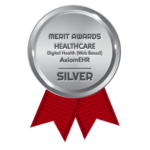The daily news is brimming with alarming stories about the threats of artificial intelligence. AI could eliminate workforces, design superbugs, or even take over the world. These risks are worthy of study, of course, but automation is already starting to do some wonderful things in health care like eliminating mind-numbing work and curbing costs for the providers we all depend on.
AI is starting to help people work more intelligently and efficiently, maximizing revenue, and minimizing frustrating red tape. Start with the fact that 12% of health-insurance claims in the U.S. are denied, and 82% of denials are potentially avoidable.
Why not clean up the messy claims, reduce the denial rate, and appeal the right mix of remaining denials? These priorities, among other things, are what we’ve been working on.
For example, we are addressing:
Under-coding. Clinicians aren’t medical billing experts, so they often fail to charge for every procedure they have performed using the correct CPT codes. Evaluation and management (“E/M”) codes are common standard codes. “Even small E/M coding mistakes can cause major compliance and payment issues if the errors are repeated on a large number of claims,” says the AAPC credentialing organization. “To ensure accurate reporting and reimbursement for these services, those involved in the coding process need to stay up to date on E/M coding rules.” Why not automate the bulk of the process and save everyone time and money? We are.
Under-documentation. Sometimes a clinician has treated a patient perfectly but has described the encounter less than perfectly, meaning the description fails to trigger reimbursement. EHR software should flag these shortcomings and coach clinicians or coders to shore them up.
Errant billing. Want to reduce billing problems? Shrink the universe of medical codes that a given clinician can select in the software. With role-based interfaces, clinicians can code only the activities they’re qualified to perform.
Overbilling. Similar to role-based limits, you restrict the impossible or unreimbursable – like seeing the same patient twice in 12 hours for the same encounter – from being coded into the EHR. Therefore, it doesn’t become a bad claim. Small efficiencies like these are big efficiencies at scale.
Missed appeal opportunities. Some claims are denied for good reason; others aren’t. Let automation help you sort them out and cost-effectively prioritize appeals.
Blind spots. Let automation and AI handle all aspects of integrated health, both behavioral health and primary care. When the left hand knows what the right one is doing, the patient and practice benefit.
Bottom line: Although AI is powerful enough to be dangerous, it’s smart enough to make health care better.





